Thymalin overview
Thymalin is a peptide hormone that is primarily produced in the thymus gland. It plays a critical role in the function of the immune system, particularly in the development and maturation of T-cells, which are responsible for identifying and eliminating viruses, bacteria and cancer cells in the body.
Studies have shown that thymalin can enhance immune function, increase resistance to infections, and improve overall health and well-being. It has also been shown to have anti-inflammatory and antioxidant properties, and may have a role in reducing the risk of chronic diseases such as cardiovascular disease and cancer.
Thymalin is currently being studied for its therapeutic potential in a range of conditions, including autoimmune disorders, cancer, and chronic infections. It is available as a dietary supplement, and is used by many individuals as a natural way to support immune function and promote optimal health. However, further research is needed to fully understand the benefits and potential risks of thymalin supplementation.
What are the benefits of Thymulin?
Thymalin is a peptide derived from the thymus gland, which is involved in immune system regulation. It has been studied for its potential applications in various areas. Here are some of the reported applications of Thymalin:
1.Immune system modulation: Thymalin has been investigated for its immunomodulatory effects. It is believed to enhance the function of immune cells, such as T lymphocytes, which play a vital role in immune response and defense against infections. Thymalin may help regulate immune cell proliferation, differentiation, and activation, thereby supporting overall immune system health.
2.Anti-aging effects: Thymalin has been explored for its potential anti-aging properties. It is thought to have rejuvenating effects on the thymus gland, which tends to shrink and become less efficient with age. By supporting thymus function, Thymalin may help maintain a more robust and effective immune system, potentially contributing to healthy aging.
3.Wound healing: Thymalin has shown promise in studies related to wound healing. It may enhance tissue repair and regeneration by stimulating the migration and proliferation of skin cells. Thymalin’s effects on wound healing may involve various mechanisms, including its immunomodulatory properties and promotion of collagen synthesis.
4.Stress resistance: Thymalin has been investigated for its potential to improve stress resistance and adaptability. It may help regulate the stress response by modulating the release of stress-related hormones and supporting the body’s ability to cope with stressors.
What are the different between Thymulin and Thymesin Alpha-1?
Thymulin and Thymosin Alpha-1 (also known as Thymosin α1) are two distinct peptide hormones derived from the thymus gland. While both have immune-modulating properties, they have different structures and functions. Here are the key differences between Thymulin and Thymosin Alpha-1:
1.Structure: Thymulin is a peptide composed of two subunits, Thymulin A and Thymulin B, which are derived from the same precursor molecule. Thymosin Alpha-1, on the other hand, is a single peptide chain consisting of 28 amino acids.
2.Origin: Thymulin is primarily produced and released by the epithelial cells of the thymus gland. Thymosin Alpha-1, although also found in the thymus, is generated through enzymatic cleavage of a larger precursor molecule called prothymosin alpha.
3.Function: Thymulin is involved in immune regulation and has been shown to enhance the function of T lymphocytes, which are essential for immune responses. It helps regulate immune cell proliferation, differentiation, and activation. Thymosin Alpha-1 also modulates the immune system, but it has a broader range of effects. It stimulates the production and maturation of various immune cells, enhances their activity, and promotes immune response against pathogens.
4.Clinical applications: Thymosin Alpha-1 has been extensively studied for its potential therapeutic applications in various conditions, including viral infections (such as hepatitis B and C, HIV), certain cancers, and immunodeficiency disorders. It has been used as an immunomodulatory agent and adjuvant therapy in some cases. Thymulin, although less studied, has shown promise in wound healing, neuroprotection, and stress regulation.
5.Clinical availability: Thymosin Alpha-1 is an FDA-approved medication available for clinical use in certain countries, particularly for the treatment of chronic viral infections and immunodeficiency disorders. Thymulin, on the other hand, is not yet widely available for clinical use and is primarily used in research settings.
It’s important to note that while both Thymulin and Thymosin Alpha-1 have shown potential benefits in research, their clinical applications may vary.
How to buy Thymalin?
Usually we have regular stock products, if you are interested in the product, please contact us for the latest stock list.
We have very safe special transportation line, Thymalin Peptide products can be sold to Europe, USA,Canada, Australia and so on.
Our payment method is Bitcoin USDT and BankAccount.








 Miracle Retatrutide: 24.2% weight loss after 48 weeks, expected to reverse fatty liver disease
Miracle Retatrutide: 24.2% weight loss after 48 weeks, expected to reverse fatty liver disease HCG peptide
HCG peptide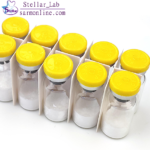 Tirzepatide peptide
Tirzepatide peptide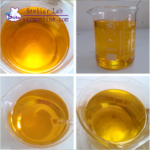 Tri Tren 180 liquid steroids
Tri Tren 180 liquid steroids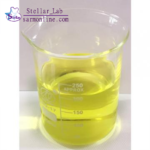 Test Blend 500 liquid steroids
Test Blend 500 liquid steroids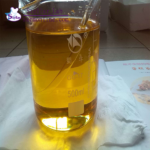 Test 400 liquid steroids
Test 400 liquid steroids BPC-157peptide
BPC-157peptide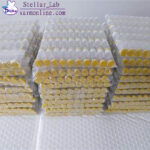 TB500 Peptide
TB500 Peptide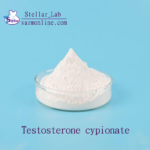 Testosterone cypionate/Depo-Testosterone
Testosterone cypionate/Depo-Testosterone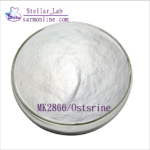 Ostarine MK2866
Ostarine MK2866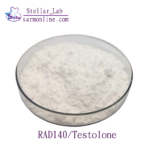 Testolone RAD140
Testolone RAD140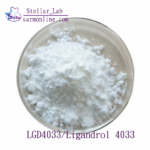 Ligandrol LGD4033
Ligandrol LGD4033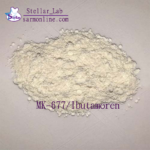 Ibutamoren MK677
Ibutamoren MK677 Thymalin
Thymalin KissPeptin 10
KissPeptin 10 Hexarelin
Hexarelin